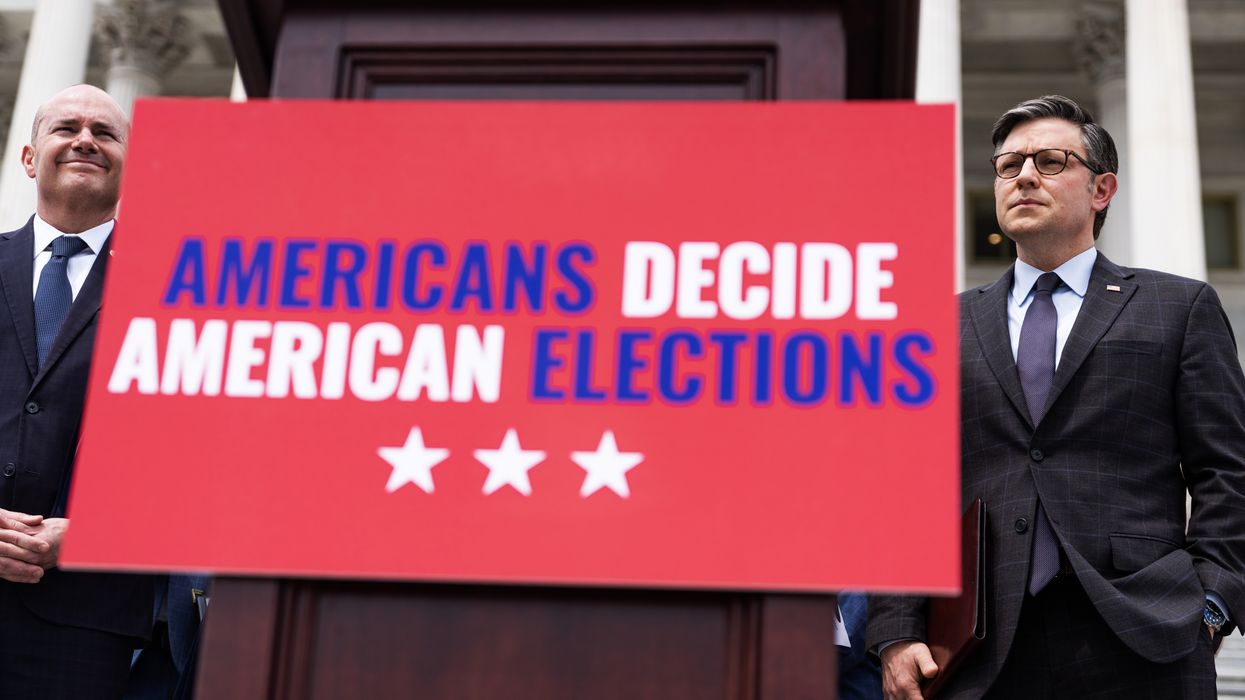Rogers is the “data wrangler” at BillTrack50. He previously worked on policy in several government departments.
Last month, we looked at a bill to prohibit noncitizens from voting in Washington D.C. To continue the voting rights theme, this month IssueVoter and BillTrack50 are taking a look at the Safeguard American Voter Eligibility (SAVE) Act.
IssueVoter is a nonpartisan, nonprofit online platform dedicated to giving everyone a voice in our democracy. As part of its service, IssueVoter summarizes important bills passing through Congress and sets out the opinions for and against the legislation, helping us to better understand the issues.
BillTrack50 offers free tools for citizens to easily research legislators and bills across all 50 states and Congress. BillTrack50 also offers professional tools to help organizations with ongoing legislative and regulatory tracking, as well as easy ways to share information both internally and with the public.
We took a deep dive into the SAVE Act, which would amend the National Voter Registration Act of 1993 to require proof of U.S. citizenship in order to register to vote in federal elections. The bill defines what constitutes acceptable documentary proof of citizenship, such as a REAL ID-compliant identification card, U.S. passport or birth certificate. It would require states to implement a program to verify the citizenship status of individuals seeking to register to vote, and it would provide federal agencies with processes to assist states in confirming citizenship. If enacted, the bill would impose criminal penalties for election officials who register noncitizens to vote.
According to the National Conference of State Legislatures, 36 states have introduced voter ID laws that require or request voters to present ID at the polls, but what's different here is that the SAVE Act imposes a more stringent test at the point of registration, as there are few forms of ID that also prove citizenship. Only about 48 percent of U.S. citizens have a passport, according to State Department data. And few people have a birth certificate handy. Driver’s licenses and tribal ID cards typically do not prove a person’s citizenship and probably couldn’t be used to register under the SAVE Act.
Read the IssueVoter analysis of the bill.
Restoring faith in U.S. elections?
The illegal Immigration Reform and Immigrant Responsibility Act of 1996makes it unlawful for noncitizens to vote in federal elections (including for the House of Representative, Senate and president), and imposes a penalty of up to year in prison for violators. It makes them ineligible to receive visas, ineligible to be admitted to the United States and deportable. So why does the bill's sponsor, Rep. Chip Roy (R-Texas), feel the bill is necessary?
"Secure elections are a key cornerstone for any representative government; without them, we won't have a country. Radical progressive Democrats know this and are using open border policies while also attacking election integrity laws to fundamentally remake America. ... [W]e must end the practice of noncitizens voting in our elections,” said Roy.
Other Republicans also cited voting by immigrants living in the country illegally to justify the new law. "Illegal immigrants and noncitizens across the nation are being improperly registered to vote, allowing them to cast illegitimate ballots in federal elections,” said Sen. Mike Lee (R-Utah), who has companion legislation in the Senate.
An attack on voting rights?
Those opposing the bill aren't buying it. "Despite numerous recounts, challenges in court, and deep-dives by conservative think-tanks, there has been zero evidence of the widespread fraud that this bill purports to target," said House Minority Whip Katherine Clark (D-Mass.). In fact, according to The Associated Press, states such as North Carolina, Georgia, Arizona, California and Texas reviewed their voter rolls between 2016 and 2022. These audits found that fewer than 50 noncitizens in each state had voted in recent elections, out of upwards of 23 million total votes per state.
"This bill would do nothing to safeguard our elections, but it would make it much harder for all eligible Americans to register to vote and increase the risk that eligible voters are purged from voter rolls. The evidence is clear that the current laws to prevent noncitizen voting are working as intended—it is extraordinarily rare for noncitizens to break the law by voting in Federal elections," reads a Statement of Administration Policy issued by the White House.
The experience of Texas illustrates potential pitfalls with attempting to verify citizenship. In 2019, the Texas Secretary of State David Whitley flagged 95,000 registered voters as potential noncitizens and attempted to check their status. The efforts prompted multiple lawsuits and ended with his resignation after it emerged that tens of thousands of names on the list were legitimate citizens.
Will the bill pass?
Despite these issues, the SAVE Act passed out of the House on July 10 by a vote of 221-198. Five Democrats — Henry Cuellar (Texas), Don Davis (N.C.), Marie Gluesenkamp Pérez (Wash.), Jared Golden (Maine), and Vicente Gonzalez (Texas) — joined all Republicans in pushing the legislation over the line. It is unlikely to progress further through the Democratic-controlled Senate, and President Joe Biden has promised to veto the bill should it reach his desk.
It is, though, another indication of how the clash between election integrity and voting rights will continue to be a hot topic in this election year. Expect to see the SAVE Act in ads and other election messages in a state near you very soon, with Republicans claiming that Democrats opposing the bill want to allow illegal immigrants to vote and Democrats responding that the bill merely seeks to make it harder for legitimate voters to cast their ballot.




















Trump & Hegseth gave Mark Kelly a huge 2028 gift